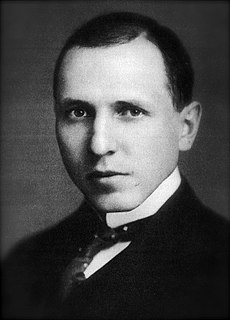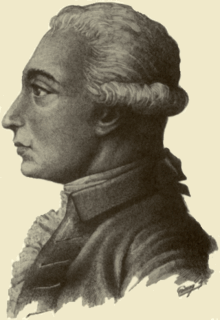A Quote by D. H. Lawrence
Pure morality is only an instinctive adjustment which the soul makes.
Quote Topics
Related Quotes
Blind obedience is itself an abuse of human morality. It is a misuse of the human soul in the name of religious commitment. It is a sin against individual conscience. It makes moral children of the adults from whom moral agency is required. It makes a vow, which is meant to require religious figures to listen always to the law of God, beholden first to the laws of very human organizations in the person of very human authorities. It is a law that isn't even working in the military and can never substitute for personal morality.
Every human soul has seen, perhaps before their birth, pure forms such as justice, temperance, beauty and all the great moral qualities which we hold in honour. We are moved towards what is good by the faint memory of these forms, simple and calm and blessed, which we saw once in a pure, clear light, being pure ourselves.
There are two kinds of pity. One, the weak and sentimental kind, which is really no more than the heart's impatience to be rid as quickly as possible of the painful emotion aroused by the sight of another's unhappiness, that pity which is not compassion, but only an instinctive desire to fortify one's own soul agains the sufferings of another; and the other, the only one at counts, the unsentimental but creative kind, which knows what it is about and is determined to hold out, in patience and forbearance, to the very limit of its strength and even beyond.
The New Testament is remarkable for its pure morality; the best of the Hindoo Scripture, for its pure intellectuality. The readeris nowhere raised into and sustained in a higher, purer, or rarer region of thought than in the Bhagvat-Geeta.... It is unquestionably one of the noblest and most sacred scriptures which have come down to us.
The relations between parents and children are certainly not only those of constraint. There is spontaneous mutual affection, which from the first prompts the child to acts of generosity and even of self-sacrifice, to very touching demonstrations which are in no way prescribed. And here no doubt is the starting point for that morality of good which we shall see developing alongside of the morality of right or duty, and which in some persons completely replaces it.
For those who feel it, nothing makes the soul so religious and pure as the endeavor to create something perfect; for God is perfection, and whoever strives after it, is striving after something divine. True painting is only the image of the perfection of God, a shadow of the pencil with which he paints, a melody, a striving after harmony.
The only initiation which I advocate and which I look for with all the ardor of my Soul, is that by which we are able to enter into the Heart of God within us, and there make an Indissoluble Marriage, which makes us the Friend and Spouse of the Repairer … there is no other way to arrive at this Holy Initiation than for us to delve more and more into the depth of our Soul and to not let go of the prize until we have succeeded in liberating its lively and vivifying origin.






































